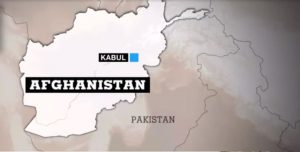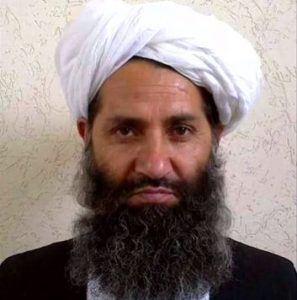The Guardian / UK: Angela Merkel has for the first time endorsed her party’s call for a partial ban on the burqa and the niqab in Germany, telling delegates at the Christian Democratic Union’s conference in Essen “the full facial veil is inappropriate and should be banned wherever it is legally possible”.
The German chancellor’s CDU party is expected this week to pass a motion proposing a ban on the full-face veil in some areas of public life such as courts, schools and universities, as well as in road traffic and during police checks. A full ban, as introduced in France in 2011, is seen as incompatible with Germany’s basic laws.
Merkel’s comments follow the Netherlands’ move at the end of November to introduce a partial ban on the full veil in hospitals, municipal institutions, schools and on transport, a measure that also covers other pieces of clothing such as motorbike helmets or balaclavas. Similar bans are already in place in Belgium, Bulgaria and the Swiss canton of Tessin.
Until further detail of the motion emerges, Merkel’s comments represent a change in rhetoric rather than a full U-turn: back in September, the chancellor had called for stricter guidelines on official situations where wearing a full-face veil was not permissible, while also stating that “lived diversity is the logical consequence of freedom”.
In her first party address since announcing she would run for a fourth term as chancellor next year, Merkel focused on law-and-order issues guaranteed to fire up her party’s conservative base.
“Our law takes precedence over codes of honour, tribal or family rules, and over sharia law – that has to be spelled out clearly,” Merkel said, explaining her decision to back a partial ban. “This also means that it is important to show face when people communicate.”
The full truth, Merkel added, was that not just migrants had to work towards integration: “Sometimes one gets the impression that some of those who have always lived in Germany are also in urgent need of an integration course.”
After her speech, 89.5% of CDU delegates re-elected Merkel as their party leader – the lowest endorsement of her time as chancellor. As in previous years, her candidacy was unopposed.
Merkel’s decision to keep borders open to thousands of refugees stranded in Hungary last September had led to a backlash, not least from her sister party, the Bavarian Christian Social Union. But during her 80-minute speech on Tuesday afternoon Merkel said “a situation like the one of summer 2015 cannot, must not and will not be repeated”.
She said: “That’s what we have been working towards for many many months – for the good of those here in Germany, and for the good of the refugees, so that they don’t fall victim to ruthless people-smugglers.”
While insisting Germany had been right to offer refuge to people fleeing a war zone in Syria, Merkel also said many asylum seekers would have to leave Germany again in the future, vowing to speed up deportations of those who had been rejected. She said: “Not all of those who have come here can and will stay.”
Many politicians on the right of her party welcomed the speech “The party desperately needed to distance its policies from those of other parties,” said the MP Carsten Linnemann.
Gabriele Boos-Niazy, the co-chair of Germany’s Association for Muslim Women, argued that in most of the areas in which banning the full-face veil was possible, it had already been done. “Judges in Germany are already able to order someone to take off their veil if they feel it necessary,” she said.
“Of the few women who wear the niqab in Germany, many avoid public transport for fear of discrimination and use cars instead. The assumption that a ban on the full facial veil in road traffic would help to liberate women is therefore highly questionable.”
Boos-Niazy estimated there were “not more than a hundred” women in Germany who wore the full-face veil, and that those who were most visible, in places such as Munich or Bad Godesberg, were usually tourists.
Burhan Kesici, the general secretary of Germany’s Islamic Council, criticised Merkel’s comments. “The government should carefully study similar moves in France, and ask themselves if one side-effect of such a ban is that it can actually lead to women feeling more excluded from society,” he said.
During her speech, Merkel also condemned Russia and Iran’s support for Bashar al-Assad and the failure to stop bombing attacks on Aleppo. She said: “It is a disgrace that we haven’t been able to set up aid corridors. We have to keep on fighting for that.”
She expressed her frustration with the lack of public outrage about the humanitarian situation in Syria, saying: “To be honest, if a free-trade agreement with the United States of America can bring hundreds of thousands out on to the streets, but the barbarous bombardments of Aleppo don’t trigger any public protests, then something is wrong with our political standards.”
On the day that the EU’s chief Brexit negotiator, Michael Barnier, insisted Britain’s new status in relation with the union would have to be inferior to membership, Merkel repeated her commitment to the EU’s “four freedoms”: free movement of goods, capital, services and people.
She said: “Negotiations around Brexit are threatening to weaken the single market, and there’s great pressure on Europe’s four basic freedoms. We will not allow any cherrypicking: the four freedoms have to be preserved. Only then can you have access to the single market – that has to be the maxim for negotiations with Great Britain.”
The year 2016 had made the world more uncertain and unstable, Merkel said: “When the world has been turned upside down, we have to first do everything to make sure that Europe doesn’t come weaker out of the current situation than it went into it.”




